At their annual meeting last month in Anaheim, California, Southern Baptists passed a series of reforms to address sexual abuse in the nation’s largest Protestant denomination.
Local church delegates, known as messengers, also passed a resolution, calling on states to make pastoral sexual misconduct a crime. Such misconduct is “a clear abuse of authority and trust,” the resolution states, similar to the trust placed in doctors, teachers, therapists and other helping professionals.
Since many states prohibit sexual relationships between those helping professionals and their patients or clients — they should also treat sexual relationships between pastors and members of their flocks as crimes, not simply a moral failing, according to the resolution.
Getting local churches to embrace that idea may be difficult.
Many still have a hard time seeing sexual misconduct by pastors as abusive. Particularly when the one abused is an adult, Baptists and other faith groups often view the survivor as the tempter — a sinner who led a holy man astray — rather than as a church member in need of care. Meanwhile, the fallen pastor is just another sinner who needs Jesus, said Andrew Hébert, pastor of Paramount Baptist Church in Amarillo, Texas.
Your tax-deductible gift helps our journalists report the truth and hold Christian leaders and organizations accountable. Give a gift of $30 or more to The Roys Report this month, and you will receive a copy of “Hurt and Healed by the Church” by Ryan George. To donate, click here.
“There’s been an assumption that this is a brother who needs to be restored — rather than realizing this is a wolf who’s trying to attack the sheep,” said Hébert. “The sheep need to be protected.”
Hébert served as vice chair of the Southern Baptist Convention’s sex abuse task force, whose work helped lead to the reforms passed this summer. He said Southern Baptists have often treated pastoral misconduct as a “moral failing” or an affair between consenting adults.
“I think today, we’ve come to know that actually is an abusive situation,” he said.
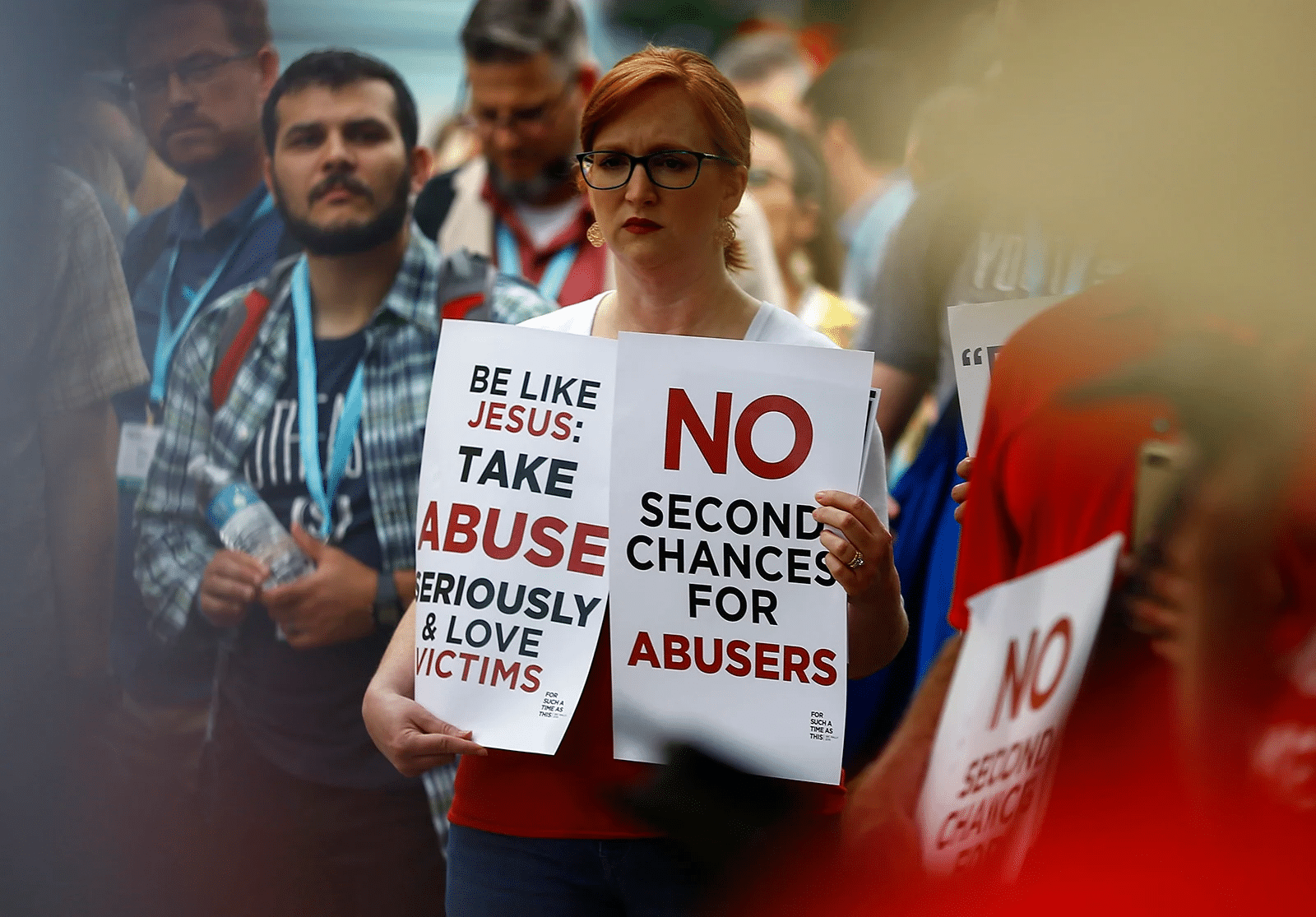
Not all Southern Baptist leaders agree. A recent report by Guidepost Solutions, which found that SBC leaders had mistreated abuse survivors and downplayed the issue of abuse for decades, has come under fire for describing sexual misconduct as abuse.
Mark Coppenger, a former SBC seminary president, dismissed that report as overblown during the annual meeting in June and in a follow-up interview. He was particularly skeptical of the story of Jen Lyell, a former SBC publishing executive who reported long-term abuse by a former seminary professor. The Guidepost report criticized SBC leaders for describing the abuse as an immoral relationship — something they later apologized for. The SBC’s Executive Committee also reached a settlement with Lyell.
“I do think the Jennifer Lyell thing is really sketchy,” said Coppenger.
A number of SBC pastors have also shared a recent article from a conservative outlet, The Daily Wire, critical of Lyell and Guidepost. The article questioned claims that Lyell had reported her abuse to police.

However, Maj. Mark Timperman of the Jeffersontown, Kentucky, Police Department told media in a phone call that Lyell had reported the abuse but declined to press charges. In a statement posted in response to The Daily Wire story, Lyell said she had provided documentation of the abuse allegations to the SBC’s Executive Committee and that several church leaders had corroborated those allegations.
In February, California pastor Rolland Slade, then-chair of the Executive Committee, read an apology to Lyell during one of the committee’s meetings, while also announcing the two sides had reached a resolution.
“The SBC Executive Committee acknowledges its failures to Ms. Lyell, including the unintentional harm created by its failure to report Ms. Lyell’s allegations of nonconsensual sexual abuse were investigated and unequivocally corroborated by the SBC entities with authority over Ms. Lyell and her abuser,” he said.
A recent message by Georgia pastor Mike Stone, a former SBC presidential candidate, addressed sexual misconduct involving “seemingly consenting adults.” In it, Stone said a pastor who engages in “immorality” has abused his authority and has more culpability.
“But if a grown, competent woman willingly and voluntarily engages with immorality with the pastor or a staff member,” he said, “she is a grown woman who has engaged in fornication and needs to be called to repent.”
David Pooler, a professor of social work at Baylor University, disagrees with that framing. Pooler, who has studied clergy misconduct, said no one wants to redefine sin. Instead, he said, he and other experts want to define clergy misconduct more accurately. Calling clergy misconduct an affair or moral failing misses the power dynamics at play, he said. Most helping professions have codes of conduct in place to protect the public from those who would misuse their trust.
“The guiding principle for any helping profession is the person with more power is always responsible,” he said.
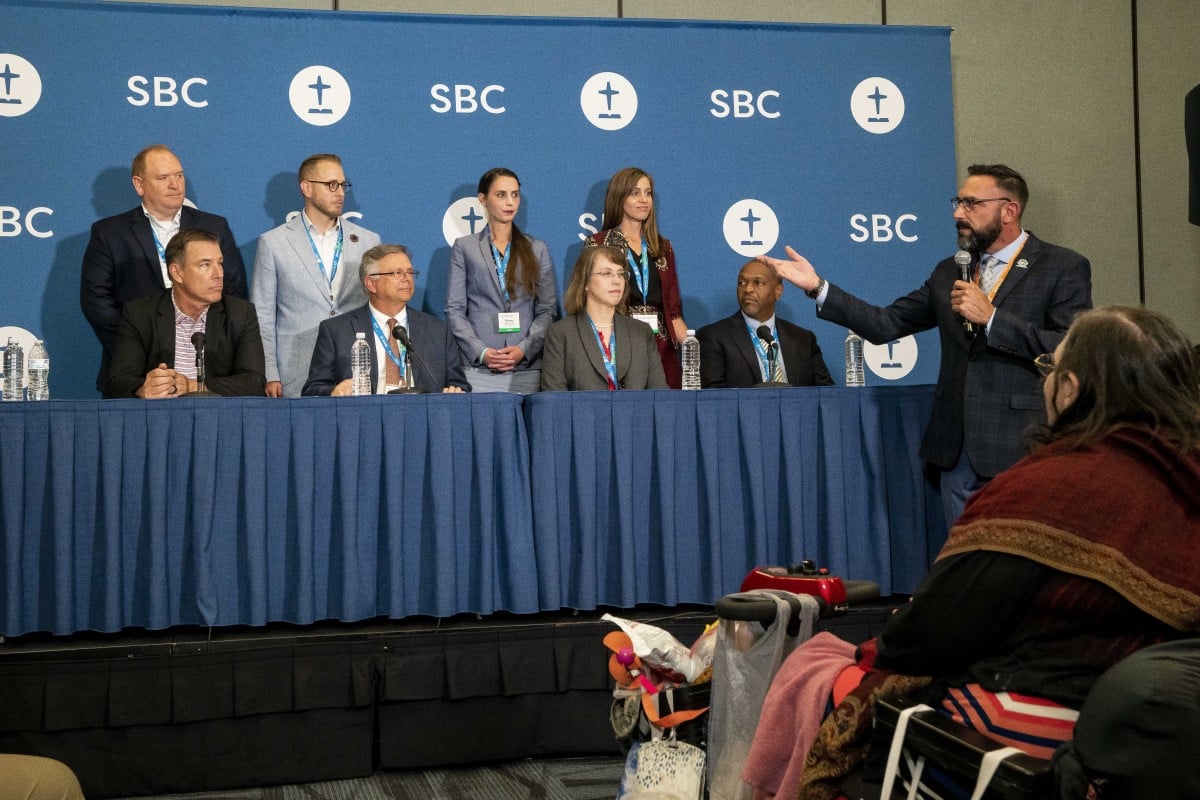
Pooler said churches often turn against adult survivors of abuse rather than helping them — seeing them as threats to the church rather than beloved members of the community. It’s easier to do that than to believe a revered church leader could have acted in abusive ways.
Pooler contrasted that approach with a familiar passage in the Gospel of John, where a woman accused of adultery is brought to Jesus by a crowd that wants to stone her. Jesus protects her instead, disbanding the angry crowd with a few words: “Let any one of you who is without sin be the first to throw a stone at her.”
That story should be an example of how church leaders can protect survivors from those who would harm them, said Pooler. But instead, he said, the focus becomes avoiding scandal or blaming the victim. Often abusers will pressure their victims to keep quiet, telling them that revealing what has happened will injure the church or their ministry. Churches often repeat that message to adult survivors — urging them not to harm “the man of God.”
That kind of approach happens in other faith communities as well. Sara Larson, executive director of Awake Milwaukee, a nonprofit started by lay Catholics that provides community and support for survivors of abuse, echoed similar experiences among those she serves.
This summer Awake has hosted drop-in gatherings for adult survivors, where they can connect with one another and find a listening ear. That can be healing for survivors, who are often alienated from their faith communities.
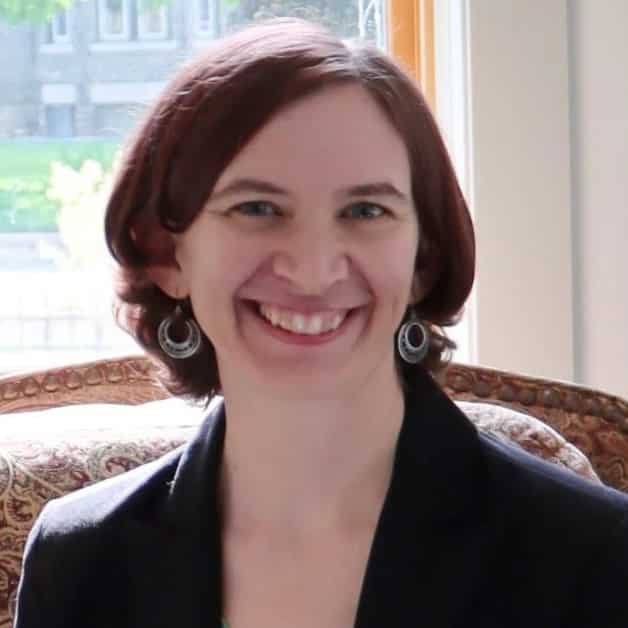
“For many people who are abused as adults, the first barrier they have to overcome is often an internal sense of shame and guilt,” she said. “Often there’s been a lot of spiritual manipulation that has brought them to a place where they think it’s their fault. And they feel a lot of shame around that.”
Before helping start Awake, Larson had worked in Catholic parish ministry, running programs like vacation Bible school and mom’s groups. She was familiar with the safety protocols the church has put in place to protect children. But until she read stories about Theodore McCarrick, a former cardinal credibly accused of abusing seminarians, she had not realized adults could be at risk when those in spiritual authority use their influence to pressure or manipulate them.
“It’s very clear that these are situations in which we can’t talk about consent,” she said. “As if you can ever consent to a sexual relationship with someone who has heard your confession, or is serving as a spiritual director or is giving you marriage counseling.”
Larson said adult survivors of abuse often are met with disbelief and shame from both church leaders and their fellow laypeople, for “leading a holy man astray.” Even if they are believed, all the focus shifts to the accused spiritual leader and how to deal with that person, leaving survivors forgotten.
At Awake, she said, the focus is on supporting survivors, walking with them and listening to their stories. Larson draws inspiration from the New Testament Book of First Corinthians, which describes the church as a body, where if “one part suffers all the parts suffer with it.”
“How can we become a church that when one person is suffering the whole body notices and cares and rushes to support them?” she said.
Bob Smietana is a national reporter for Religion News Service.
For more on this topic, tune in to “Understanding Adult Clergy Abuse” on The Roys Report featuring Dr. Diane Langberg.





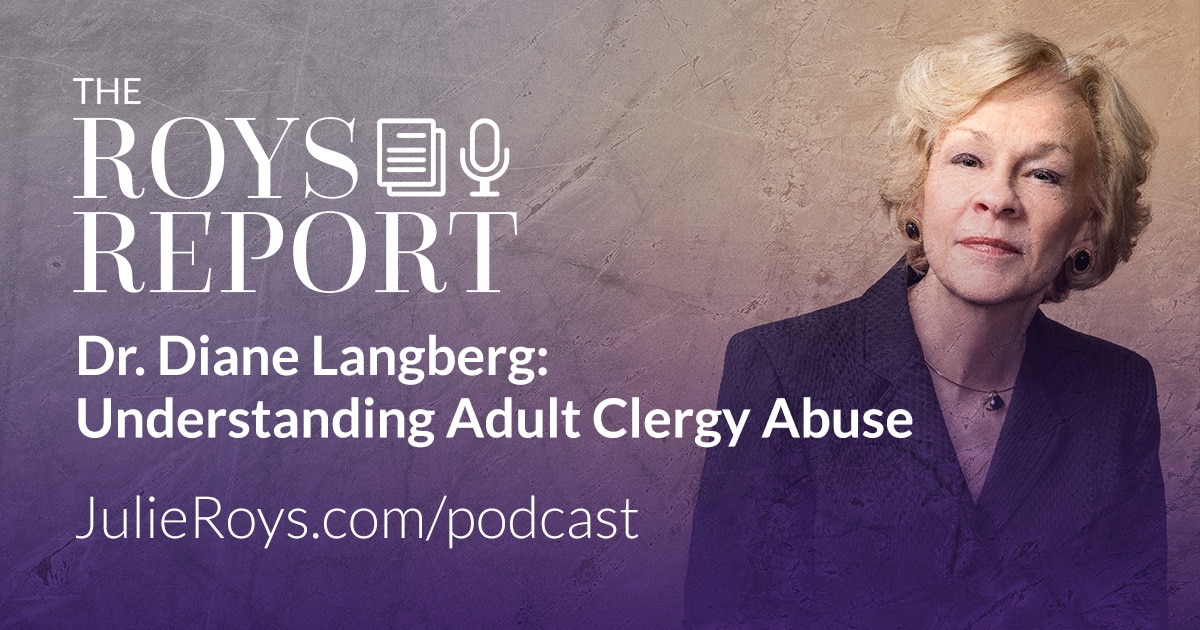
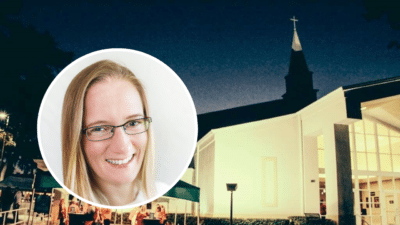
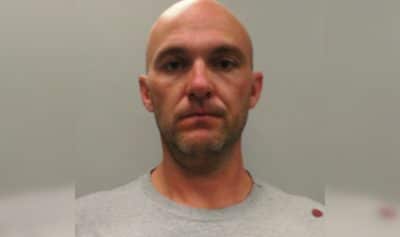
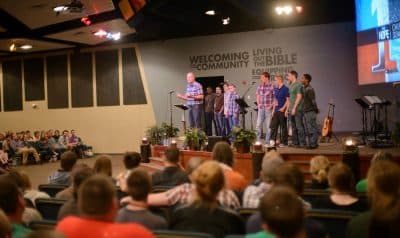



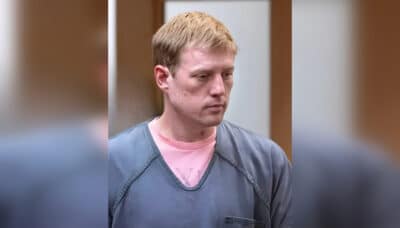
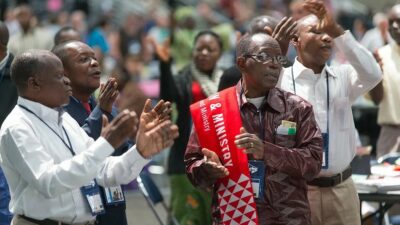
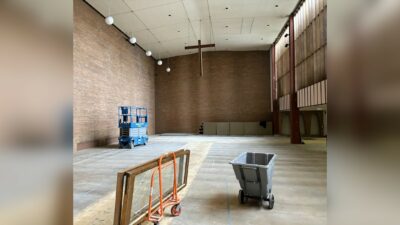






25 Responses
Great article with a clear description of the power dynamics in clergy sexual abuse… They are not affairs and should stop being described as such.
But, what if they are ‘affairs’ and are rightly so described?
Sure, there are no doubt some cases where the pastor was the pursued and not the pursuer, but it’s clear from decades of research into workplace relationships that the party with the power is the pursuer in the vast majority of the cases, because of the power and control they can exert and the opportunities it often affords them.
When it’s not a relationship of equals, it’s far more likely to be a predatory relationship because people with the power will deliberately seek out those who are younger, less confident, more naïve, and hence more easily manipulated into a sexual relationship. Even if the victim has fallen in love with them, it doesn’t make them any less a victim in those cases. The fact there’s often a pattern of bad behavior on the part of the predator merely reinforces this.
Sex with the flock is never an affair. It is clergy abuse.
Excellent article! very well articulated. Very important but understated point, as well. This is the kind of journalism we need more of!!
Great article. However, I’m having a really hard time understanding something that I’m seeing as a trend lately…
It seems that in cases of clergy sexual abuse, it is being presented that, as long as power dynamics are in play, the victim is completely innocent. Yet, in this very article, the passage used to back that up is Jesus saying, “Let the first one of you without sin cast the first stone.” But it seems to be ignored that he also says to the woman in that passage, “Go and sin no more.” She is not innocent. Yes, in power dynamics, the one with more power is obviously the one with the greater sin, and yes, has disqualified themselves from ministry, but to ignore sin in any area of anyone’s life is never healthy in the long run.
Part of the article portion states the following:
“A recent message by Georgia pastor Mike Stone, a former SBC presidential candidate, addressed sexual misconduct involving ‘seemingly consenting adults.’ In it, Stone said a pastor who engages in ‘immorality’ has abused his authority and has more culpability.
‘But if a grown, competent woman willingly and voluntarily engages with immorality with the pastor or a staff member,’ he said, ‘she is a grown woman who has engaged in fornication and needs to be called to repent.'”
In abuse recovery, people need to learn that they have control, and having control comes with responsibility. The very same advocates that are on this site agree with this, so it’s odd to me that this aspect never seems to be discussed, but it always seems like it is 100/0 person-in-power/victim is the dynamic here. The reasoning needs to be consistently applied, not cherry-picked in someone life.
Learning how to spot a predator is not the same as assigning a measure of blame to the victim.
The sheep didn’t want to be caught by the wolf.
Mark,
Thank-you – it is apparent Kevin at this point simply does not get it….
I “get it”, and that comment is not helpful nor does it answer my question.
I know this. That does not answer my question at all. Did you read what I wrote?
I read your comment in full. Nobody said an abuse victim has no control or responsibility.
If you want to properly address the abuse victim’s part, send him or her to qualified independent counseling.
Maybe I need to clarify: what I mean is that part of the way a victim recognizes or reclaims control in their life, is to recognize the parts they had no control over. And this is for counseling, not for the church that already failed to protect the victim.
In the “woman caught in the act of adultery” story, there are power dynamics in play, too, or else there would have also been a man caught in the act of adultery. Some people think that something to do with this is what Jesus was writing in the dust. Yet, in spite of the obvious injustice of the woman being set up and seduced by a conspiracy of the religious rulers, to bring down Jesus, He dealt with the need of HER soul, respectfully and kindly. That’s a pretty serious thing to omit, if we get so crazy about our ability to bring down kings that we forget the whole point of Jesus coming into the world is for the sinners, NOT for the righteous. The worldly point of view thinks the worst thing you can call someone is a sinner, but Jesus coming for dinner, not the righteous, will cause us to reevaluate that. Along with everything else.
I observe that too often, the leaders in these situations tend to see themselves as victims. Focusing on the non-leader helps to deflect their responsibility, as well. Jesus’ warning that it would be better to be drowned with a millstone than to cause a little one to sin speaks to this dynamic. Clearly the burden of responsibility isn’t shared equally in this statement.
Yes, as I said, “the one with more power is obviously the one with the greater sin”.
I’m not advocating “focusing” more on one that the other. I’m talking about the error of focusing more on one and *completely* neglecting the other sin.
I was afraid this was how it would be interpreted, and that people would read what they want into what I wrote rather than exactly what I wrote
I would bet that in an overwhelming majority of these cases, the woman involved knows it’s wrong and doesn’t need anyone to point that out for her. Working through the issues related to abuse isn’t a public matter. Who gets to stand behind the pulpit is very much so.
The prey (the person abused), by clergy, is NOT in control. Sexual predation by clergy, toward the flock, is always abuse. Abusive clergy uses manipulative control to accomplish their predatory needs.
This is one of the main reasons I left the Southern Baptist after being a member, from birth till over 50. I was somewhat hopeful after the meeting, but a majority of the pastors still don’t get it!! Keep blaming the victim. I have little hope of change.
Psychologists and now lawyers have rules against these “relationships”. They are not real. It is not love, The feelings that it inspired in the person being counseled or represented is a normal part of the process. Some people are willing to take advantage of it, however.
Pastors and church staff having sexual relations with people other than their spouses is probably a more serious and immediate problem than the prospect of LGBTQ+ infiltration of the congregations. But there’s not as much virtue to be signaled with exposing adulterers and fornicators. And there’s the possibility of getting caught in the blowback from Romans 2:1.
Not a terribly important point, but the adulterous woman story occurs in John, not Luke.
Loren,
Actually it depends which mss you read…????
Perhaps a better example would have been David and Bathsheba. It would be helpful if churches would stop characterizing David and Bethsheba as having an affair or committing adultery. No where in the Biblical narrative is Bathsheba assigned guilt or blame in that scenario. As king, David clearly had power over her. Rightly characterizing David as raping or committing sexual assault against Bathsheba might help people see the power dynamics at play in modern situations of sexual assault and coercion.
No kidding. Amnon didn’t get that idea out of nowhere. 2 Samuel 13. And Bathsheba was only the one we heard about.
Really good point, Amy Kramer.